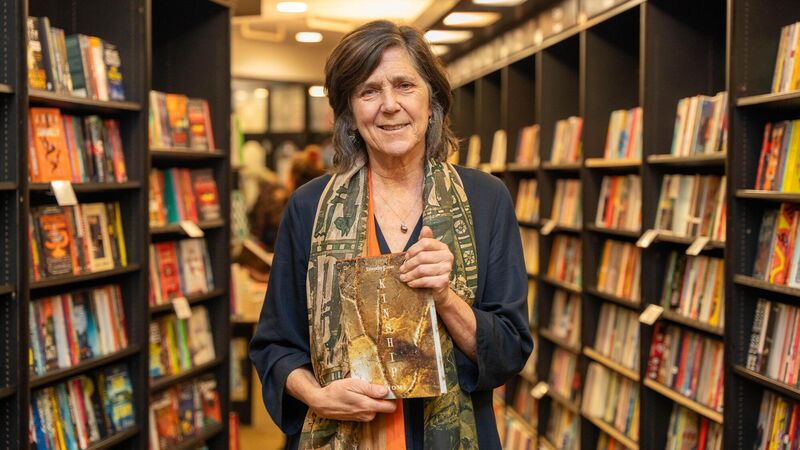Moving a mummy from Connemara to Cork to Cairo: Dorothy Cross on her Kinship project

Dorothy Cross at Waterstones in Cork with a copy of her Kinship: Home book. Picture: Noel Sweeney
Launching Dorothy Cross’ new book at Waterstone’s Cork last week, John O’Halloran, the president of UCC, praised the Montenotte-born artist for her courage in taking on the project the book is based on; the restitution of a 2,000-year-old mummified man to Egypt.
“UCC is a university that really wants to support everything about diversity, equality, inclusion and belonging,” he said.




